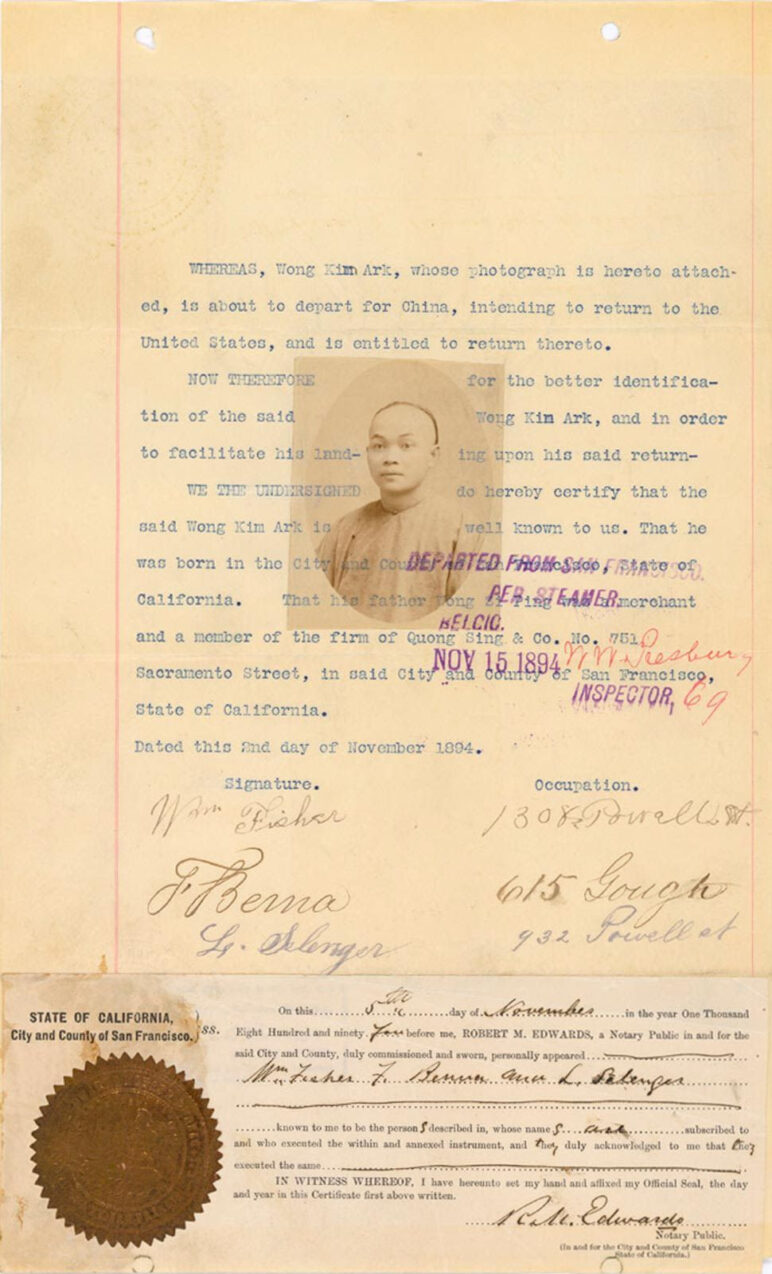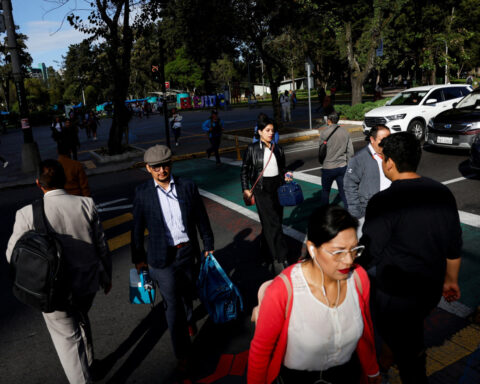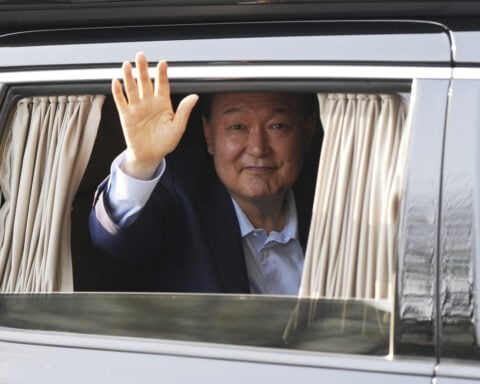(CNN) — In the few days since he returned to the White House, President Donald Trump’s sweeping executive orders and mass pardons have shattered political and legal norms. But one order is in a category of its own.
His decree proposing to end the constitutional promise of birthright citizenship contradicts the plain words of the 14th Amendment and would reverse an 1898 Supreme Court milestone. That case, brought by the son of Chinese nationals, has long guaranteed citizenship for anyone born in the United States, unless the parents fall under such narrow exceptions as foreign diplomats or soldiers of invading armies.
The Trump directive recalls the era of Dred Scott v. Sandford, the infamous 1857 decision that said Black people could not be citizens. That case, which helped precipitate the Civil War, was reversed by ratification of the 14th Amendment in 1868.
Perhaps to counteract comparisons with a reviled decision that rested on notions of White supremacy, the executive order referred to Dred Scott at the outset, calling it a “shameful decision.” But then the directive recast the 14th Amendment to befit Trump’s anti-immigrant mission and to exclude children born to undocumented parents.
Immigrant-rights advocates, civil libertarians and 24 Democratic-led states and cites immediately filed a series of lawsuits. On Thursday, a Ronald Reagan-appointed federal judge in Seattle issued a temporary restraining order against Trump, calling the executive order “blatantly unconstitutional.”
The challenges set the stage for a court confrontation over a central tenet of American identity and assurances woven into life here for more than a century.
The litigation is likely to reach the Supreme Court, where Dred Scott has long been regarded as a great “self-inflicted wound.” But a new conservative supermajority has given Trump supporters hope that it might eventually reverse yet another precedent.
This one would be different.
Trump’s view of the 14th Amendment conflicts with the clear text and a legal interpretation more than a century old. And in contrast to other areas of policy and individual rights, the justices have not signaled any desire to revisit United States v. Wong Kim Ark.
Unlike landmarks like Brown v. Board of Education, New York Times v. Sullivan and Roe v. Wade, Wong Kim Ark and birthright citizenship never became flashpoints at justices’ Senate confirmation hearings. Nor has birthright citizenship become part of the daily political discourse the way abortion has. And unlike the guarantee of privacy and other fundamental rights implicit in the Constitution, the Citizenship Clause of the 14th Amendment is explicit.
It states: “All persons born or naturalized in the United States, and subject to the jurisdiction thereof, are citizens of the United States and of the State wherein they reside.”
Another factor distinct to this moment: The current Supreme Court majority takes an “originalist” approach, and the history and tradition underlying the 14th Amendment and the 1898 case would make reversal of Wong Kim Ark difficult to justify.
Writing last year in the Georgetown Immigration Law Journal, Professor Sandra Rierson said the expansive text of the 14th Amendment, including the phrasing regarding jurisdiction, “had a clear and long-standing meaning under the common law that existed” when the Amendment was adopted, and “that meaning was reiterated and explained throughout the congressional debates.”
Rierson, whose essay traced the proliferation of proposals to end birthright citizenship, observed that modern opposition has arisen “in the context of escalating hostility towards immigrants, especially non-white immigrants.”
After Trump issued his order this week, Rierson, who teaches at Western State College of Law in California, posited that the conservative justices who control the court would, based on their own reasoning, be unlikely to reverse precedent.
“If what they’re really concerned about is history and tradition in the United States,” she told CNN, it would be difficult to accept Trump’s executive order.
“Wong Kim Ark came out at a time of anti-immigrant phobia that certainly rivals what we have today,” she added. “It’s not that the justices didn’t understand hostility toward immigration. … Politicians have always exploited the fear of the other.”
During the 1890s, anti-immigrant fervor was particularly directed at the Chinese. The case began when Wong Kim Ark, at roughly age 21, left America to visit relatives in China; upon his return, he was denied entry, on grounds that he lacked US citizenship.
In its 1898 ruling, the Supreme Court majority said the plain words of the 14th Amendment protected the son of Chinese nationals who was born in the United States.
“The Amendment, in clear words and in manifest intent, includes the children born, within the territory of the United States, of all other persons, of whatever race or color, domiciled within the United States,” Justice Horace Gray wrote for the majority. “Every citizen or subject of another country, while domiciled here, is within the allegiance and the protection, and consequently subject to the jurisdiction, of the United States.”
The court concluded, “To hold that the Fourteenth Amendment of the Constitution excludes from citizenship the children, born in the United States, of citizens or subjects of other countries would be to deny citizenship to thousands of persons of English, Scotch, Irish, German, or other European parentage who have always been considered and treated as citizens of the United States.” The court noted that Wong Kim Ark’s parents had at the time “a permanent domicil and residence in the United States,” yet the court did not condition its interpretation of the 14th Amendment on that fact.
Lawsuits focus on harm of Trump’s order
The series of lawsuits that have been filed since Monday emphasize the potential harm to individual people under Trump’s order.
“Babies are being born today here, and in the plaintiff states and around the country, with a cloud cast over their citizenship,” a lawyer for the state of Washington said in court Thursday.
Nationally, according to the complaint from four Democratic-led states in Seattle, in 2022, “there were approximately 255,000 births of citizen children to non-citizen mothers without lawful status (undocumented) and approximately 153,000 births to two undocumented parents.”
The filing outlines the consequences for children who would lose eligibility for vital benefits and social services. Adults would be unable to obtain Social Security numbers and work lawfully. And they would not be able to vote. Overall, the claim asserts, the newly affected individuals “will be placed into lifelong positions of instability and insecurity as part of a new underclass in the United States.”
Since Trump first ran for the presidency in 2016, he has railed against birthright citizenship. During his 2024 campaign he vowed that on Day One of a second term, he would order an end to birthright citizenship, which he insisted was “based on a historical myth and a willful misinterpretation of the law.”
Monday, after again taking the oath of office from Chief Justice John Roberts, Trump laid out his order called “Protecting the Meaning and Value of American Citizenship.”
He opened by stating that “The privilege of United States citizenship is a priceless gift.” He said Dred Scott misinterpreted the Constitution “as permanently excluding people of African descent from eligibility for United States citizenship solely based on their race.”
Then he asserted: “But the Fourteenth Amendment has never been interpreted to extend citizenship universally to everyone born within the United States. The Fourteenth Amendment has always excluded from birthright citizenship persons who were born in the United States but not ‘subject to the jurisdiction thereof.’”
Rejecting the entrenched understanding of the Citizenship Clause, Trump set out two new categories of individuals born in the US who would not be covered: those whose mother was unlawfully present in the US and whose father was not a US citizen or lawful permanent resident at the time of the child’s birth; and those whose mother was in the US on a lawful but temporary visa (such as a student or tourist visa) and whose father was not a US citizen or lawful permanent resident at the time of the birth.
He said his January 20 order would take effect in 30 days.
Trump’s limitation on the 14th Amendment echoes legal theories, previously on the fringe, that the phrase “subject to the jurisdiction” of the US would not reach undocumented immigrants.
Former Chapman Law professor John Eastman, one of the most prominent critics of birthright citizenship and a strategist behind Trump’s failed challenge to the 2020 election results, argued the 14th Amendment covered individuals subject to “complete” political jurisdiction with no allegiance elsewhere.
“Justice Gray simply failed to appreciate … that there is a difference between territorial jurisdiction and the more complete, allegiance-obliging jurisdiction that the Fourteenth Amendment codified,” Eastman wrote in the University of Richmond Law Review, contending the 1898 court wrongly construed the “jurisdiction” restriction to cover a discrete category such as the children of diplomats.
Eastman argued the majority opinion in Wong Kim Ark was also “at odds with” principles underlying the sovereign power of naturalization. “What it meant, fundamentally, was that foreign nationals could secure American citizenship for their children unilaterally, merely by giving birth on American soil, whether or not their arrival on America’s shores was legal or illegal, temporary or permanent.”
Roger Taney and the infamous Dred Scott
No current cases would support Trump’s position on birthright citizenship. Yet traces of his rhetoric about immigrants “invading” America surfaced last year in an opinion by US Appeals Court Judge James Ho that could, perhaps, eventually be used to advance the president’s stance.
In a concurring opinion in a dispute unrelated to birthright citizenship, Ho, a 2018 Trump appointee on the federal appellate court covering Texas, Louisiana and Mississippi, was receptive to arguments that illegal immigration at the Texas border could constitute an “invasion.” That language could evoke an exception to the established 14th Amendment interpretation, for children of invading armies.
Judge Ho has often reinforced emerging conservative theories. Before joining the bench, however, he wrote an essay directly addressing birthright citizenship and said the 14th Amendment and Wong Kim Ark case protected children of undocumented immigrants.
“All three branches of our government – Congress, the courts, and the Executive Branch – agree that the Citizenship Clause applies to the children of aliens and citizens alike,” he said in a 2006 essay in The Green Bag.
Ho concluded with a warning if a move were made to withdraw birthright citizenship: “Stay tuned: Dred Scott II could be coming soon to a federal court near you.”
Chief Justice Roberts received no questions about the Wong Kim Ark case during his 2005 Senate confirmation hearings. But Dred Scott was raised, and Roberts responded by calling it, “perhaps the most egregious examples of judicial activism in our history … in which the Court went far beyond what was necessary to decide the case.”
“And really, I think historians would say that the Supreme Court tried to put itself in the position of resolving the dispute about the extension of slavery, and resolving it in a particular way that it thought was best for the Nation,” he added. “And we saw what disastrous consequences flowed from that.”
Since then, Roberts has also alluded to Dred Scott in terms of his own legacy.
“You wonder if you’re going to be John Marshall or you’re going to be Roger Taney,” he said in 2010, contrasting the great 19th century chief justice with the chief justice who wrote Dred Scott.
“The answer is, of course, you are certainly not going to be John Marshall,” Roberts said. “But you want to avoid the danger of being Roger Taney.”
This story has been updated following Thursday’s ruling blocking the executive order.
The-CNN-Wire
™ & © 2025 Cable News Network, Inc., a Warner Bros. Discovery Company. All rights reserved.

 Trump has begun another trade war. Here's a timeline of how we got here
Trump has begun another trade war. Here's a timeline of how we got here
 Canada's leader laments lost friendship with US in town that sheltered stranded Americans after 9/11
Canada's leader laments lost friendship with US in town that sheltered stranded Americans after 9/11
 Chinese EV giant BYD's fourth-quarter profit leaps 73%
Chinese EV giant BYD's fourth-quarter profit leaps 73%
 You're an American in another land? Prepare to talk about the why and how of Trump 2.0
You're an American in another land? Prepare to talk about the why and how of Trump 2.0
 Chalk talk: Star power, top teams and No. 5 seeds headline the women's March Madness Sweet 16
Chalk talk: Star power, top teams and No. 5 seeds headline the women's March Madness Sweet 16
 Purdue returns to Sweet 16 with 76-62 win over McNeese in March Madness
Purdue returns to Sweet 16 with 76-62 win over McNeese in March Madness








